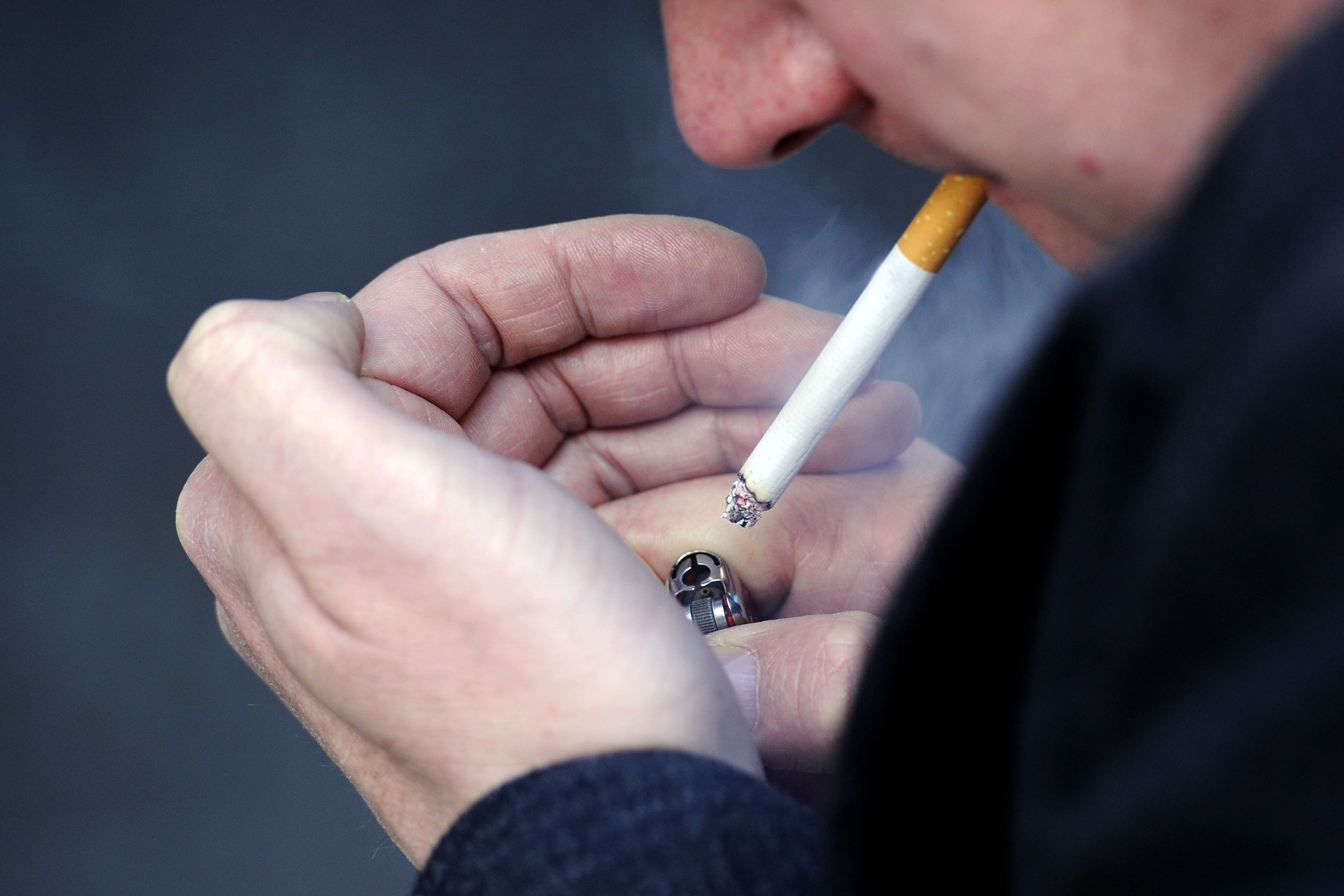Researchers call on governments to raise legal smoking age to 22
The findings of the Japanese study suggested a lower dependency on nicotine in later life if a person started smoking after 22.

Young people should be banned from buying tobacco products until they are 22, researchers have suggested after a study found those who start smoking before the age of 20 find it more difficult to quit.
Scientists said a rise in the minimum age by governments across the world could reduce nicotine dependence.
A team from Japan looked at 1,382 smokers who had visited a smoking cessation clinic in Kyoto.
Patients were split into two groups based on the age they started smoking – less than 20 years old or 20 years and older.
They all completed the Fagerstrom test for nicotine dependence (FTND), a standard tool to assess a the intensity of a person’s physical addiction to nicotine.
Our results show that starting smoking early is linked with higher nicotine dependency, even in young adulthood
The test asked questions such as ‘how soon after you wake up do you smoke your first cigarette?’ and ‘how many cigarettes per day do you smoke?’, with patients giving a score for each answer.
The figure is then tallied up to a dependency score of low (one-two), low to moderate (three-four), moderate (five-seven) or high (eight or higher).
Carbon monoxide was also measured in the breath to indicate the number of cigarettes smoked in the past 24 hours.
Some 556 smokers had started before the age of 20 – the legal age in Japan – while 826 had started later.
Those who took up the habit before 20 reported smoking 25 cigarettes per day compared to 22 per day in the late-starter group.
Those who started earlier also had higher respiratory carbon monoxide levels in the breath.
The study indicates that increasing the legal age to buy tobacco to 22 years or older could lead to a reduction in the number of people addicted to nicotine and at risk of adverse health consequences
Of the early starters, 46% had successfully quit smoking, compared to 56% of those who started smoking at aged 20 or over.
The findings have been presented at the European Society of Cardiology (ESC) Congress 2023 in Amsterdam.
Author Dr Koji Hasegawa, of the National Hospital Organisation Kyoto Medical Centre, said: “Our results show that starting smoking early is linked with higher nicotine dependency, even in young adulthood.
“The study indicates that increasing the legal age to buy tobacco to 22 years or older could lead to a reduction in the number of people addicted to nicotine and at risk of adverse health consequences.”
In the UK, you must be over 18 to buy cigarettes. The minimum age was increased from 16 in 2007.
It is estimated that 13.3% of over 18s – 6.6 million people – smoked in the UK as of 2021.
According to NHS England, smoking causes about 76,000 deaths per year, with many more living with debilitating conditions caused by the habit.
In 2019, the Government unveiled its ambition to make England ‘smoke free’ by 2030, meaning only 5% of the population will smoke.
A report called ‘The Khan Review: making smoking obsolete’ was published in June 2022 and includes a suggestion to raise the legal age of smoking.
It said: “The Government must stop young people starting to smoke, which is why I recommend increasing the age of sale from 18, by one year, every year until no one can buy a tobacco product in this country.”
The report also calls for more investment in smoking cessation services, the promotion of vapes and making smoking prevention part of the “NHS’s DNA”.
Bookmark popover
Removed from bookmarks